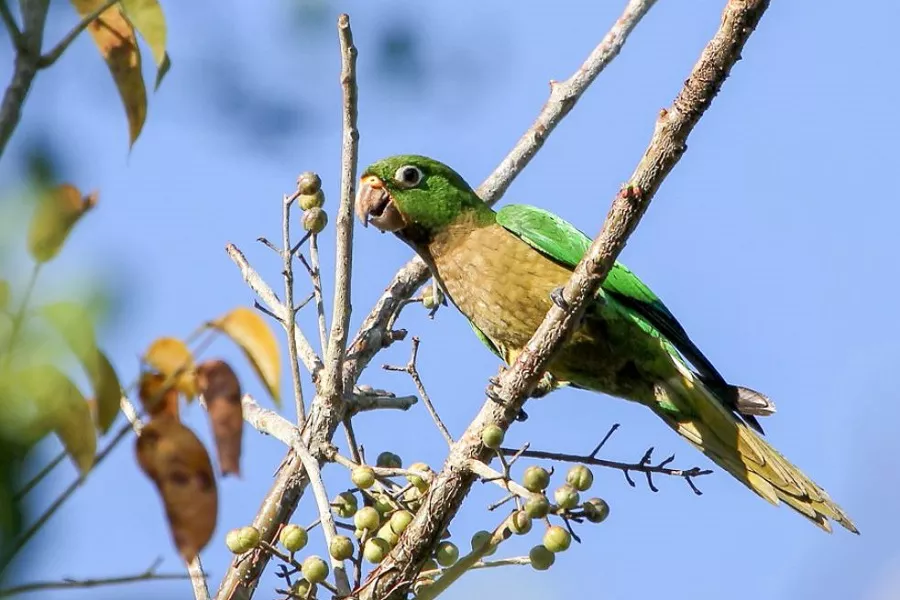Conures are a popular species of parrots that are known for their vibrant colors, playful personalities, and curious nature. As with any pet, it is important to make sure that conures receive a balanced and nutritious diet to maintain optimal health. A question often asked by pet owners is whether conures can eat carrots. In this article, we will explore the nutritional benefits of carrots, how they can be incorporated into a conure’s diet, and potential risks associated with feeding carrots to conures.
Nutritional Benefits of Carrots
Carrots are a highly nutritious vegetable that contain an abundance of essential vitamins and minerals that are vital for overall health and well-being. They are rich in beta-carotene, a powerful antioxidant that is converted into vitamin A in the body. Vitamin A is essential for maintaining healthy vision, promoting skin and coat health, and supporting immune function.
In addition to beta-carotene, carrots also contain significant amounts of other important nutrients such as vitamin K, vitamin C, potassium, and fiber. Vitamin K is crucial for blood clotting and bone health, while vitamin C is important for boosting immunity and promoting collagen production. Potassium, on the other hand, helps regulate fluid balance in the body and supports heart health. Finally, fiber plays a vital role in digestive health and promotes satiety.
How Can Carrots be Incorporated into a Conure’s Diet?
Carrots can be a great addition to a conure’s daily diet, as long as they are fed in moderation and prepared properly. The best way to feed carrots to conures is to chop them into small bite-sized pieces, which makes them easier to digest and reduces the risk of choking. It is important to remember that carrots should not be the main source of nutrition for conures but rather a supplement to a varied and balanced diet.
Conures require a diet that is high in fruits, vegetables, and grains. A balanced diet for a conure should consist of up to 70% fruits and vegetables, 20% grains, and 10% protein.
When feeding carrots to conures, it is important to always wash them thoroughly to remove any dirt or pesticides that may be present on the surface. Organic carrots are preferred as they are free from harmful chemicals and pesticides. Furthermore, it is recommended to introduce carrots in small quantities at first to ensure that your conure tolerates them well before increasing the portion size.
Potential Risks Associated with Feeding Carrots to Conures
While carrots are generally safe for conures to eat, there are a few potential risks associated with feeding them in excess. One risk is that if too many carrots are fed, they can cause digestive problems such as diarrhea or constipation. This is because carrots contain high amounts of fiber, which can cause gastrointestinal distress if consumed in large quantities.
Another risk is that carrots are high in natural sugars, which can lead to weight gain and other health problems if consumed excessively. This is why it is important to feed carrots in moderation and include a variety of other fruits and vegetables in a conure’s diet.
Finally, it is important to note that all birds are unique and can have individual dietary needs. Before introducing any new food to your conure’s diet, it is recommended to consult with a veterinarian or avian nutritionist to ensure that it is safe and appropriate for your bird’s specific needs.
Conclusion
In conclusion, carrots can be a nutritious and tasty addition to a conure’s diet when fed in moderation and prepared properly. They are rich in essential vitamins and minerals that promote overall health and well-being. However, it is important to remember that carrots should not be the main source of nutrition for conures but rather a supplement to a varied and balanced diet. Always wash carrots thoroughly, chop them into small pieces, and introduce them in small quantities to ensure your conure tolerates them well. Consult with a veterinarian or avian nutritionist before introducing any new food to your conure’s diet to ensure their specific dietary needs are met.
Recommended reading: What is a Conures Favorite Food


 Facebook
Facebook  Instagram
Instagram  Youtube
Youtube 